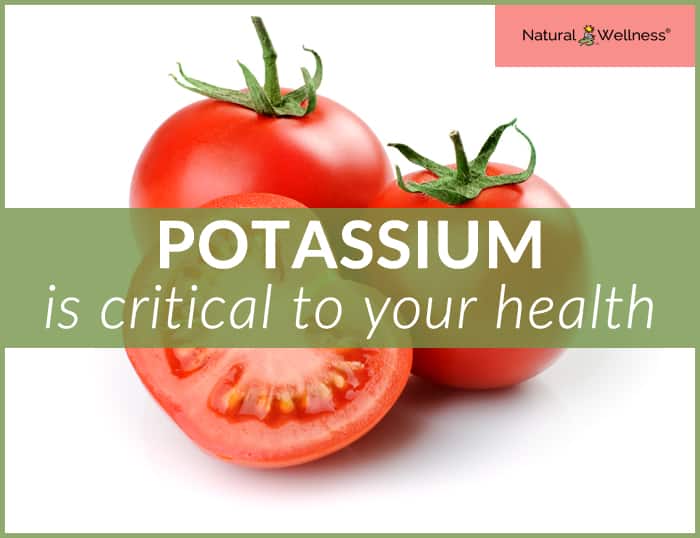

Why We Need Potassium
Potassium is a mineral necessary for proper heart function and is a key element in skeletal and smooth muscle contraction – making it vital for normal digestion and muscle function. Potassium is an electrolyte, meaning it conducts electricity between cells in the body. Other electrolytes are sodium, chloride, calcium and magnesium, all vital for heart, muscle and digestive functions. Potassium is the primary electrolyte in fluid inside the cells, while sodium is the primary electrolyte in fluid in the interstitial spaces, or outside the cell membranes.
Potassium is required for building muscle, breaking down and metabolizing carbohydrates, normal growth and control of the acid/base balance in the body. Another critical function of potassium is the control of the electrical activity in the heart.
Some Sources of Potassium
We normally get potassium from our diets. Red meat, milk, yogurt and fish are excellent sources of potassium. Veggies such as broccoli, peas, lima beans, tomatoes, potatoes and sweet potatoes are also great sources of potassium.
Signs of Low Potassium
A low level of potassium is called hypokalemia, and can result in weak muscle tone, abnormal heart rhythms, constipation, mood changes and high blood pressure. Diuretics, laxatives, severe vomiting and diarrhea may result in low levels of potassium. Muscle cramping is one of the first sings that potassium levels may be too low.
Signs of High Potassium
High levels of potassium results in a condition called hyperkalemia, and may also result in abnormal heart rhythms. Heart medications and poor kidney function may result in high potassium levels. The kidneys remove excess potassium through the urinary system, so kidney function plays a key role in maintaining healthy potassium levels. Water retention is an early sign that potassium levels may be too high.
Editor’s Note: Uricare® supports normal kidney and urinary tract function and supports normal urine composition. Uricare® contains several time-tested herbs utilized in supporting the kidneys in maintaining healthy water management. Uricare can aid in reducing temporary water-weight gain from fluid retention.




